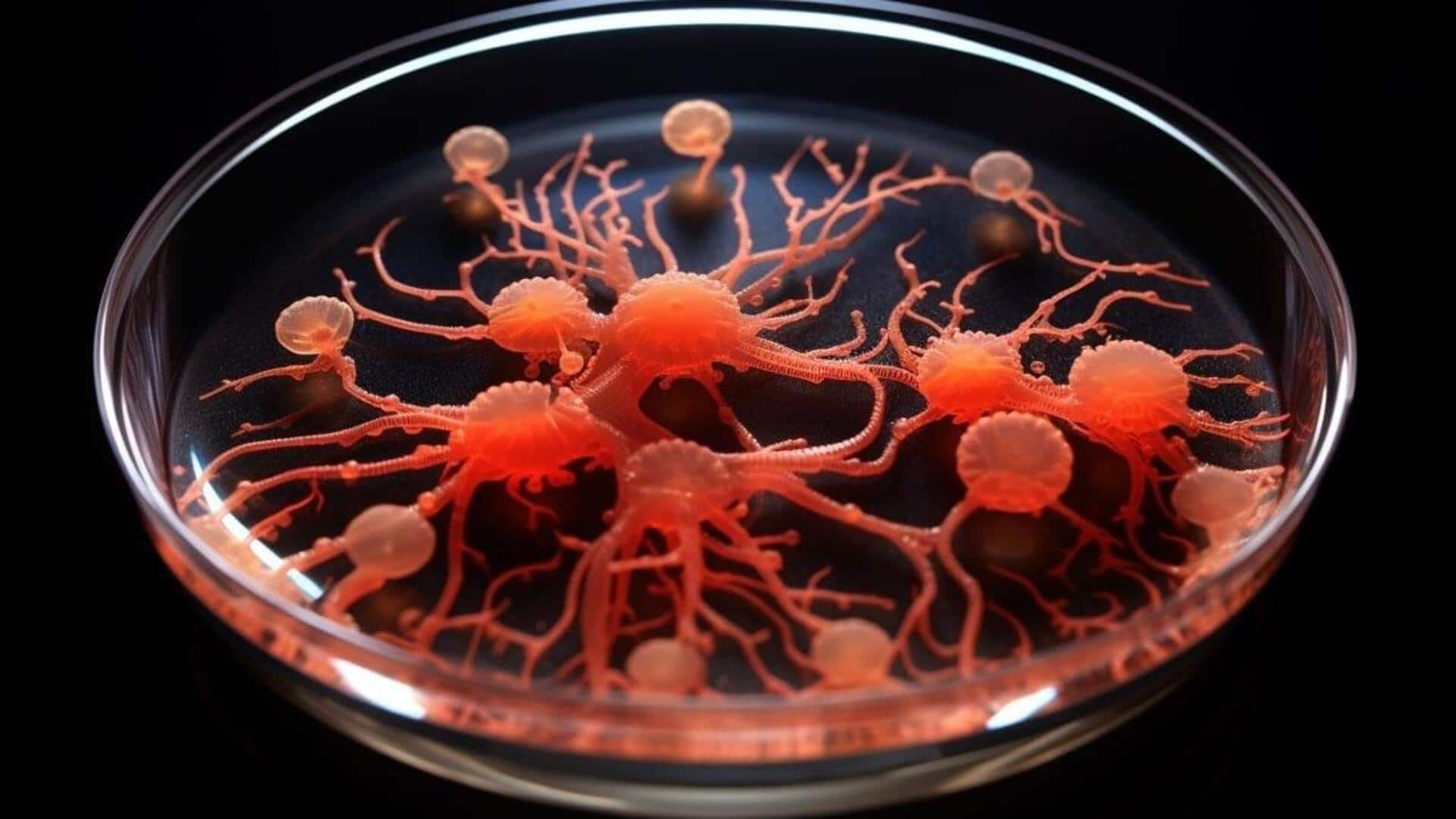
Lab-grown brains are unlikely to achieve consciousness anytime soon
What's the story
Brain organoids are 3D models grown in labs, in order to mimic the human brain. They are typically developed from stem cells.
Over the last 10 years, such models have become increasingly sophisticated, and can now replicate multiple types of brain cells that can communicate with each other.
This has prompted certain scientists to question whether these organoids could gain consciousness.
However, neuroscientist Kenneth Kosik, from the University of California, does not believe it will happen anytime soon.
Organoid formation
Creation and structure of brain organoids
Kosik explained the process of creating brain organoids from stem cells.
"You can take any person and convert their skin fibroblasts into stem cells, and then differentiate them into neurons," he said.
These neurons begin to grow in three dimensions when placed in a drop of Matrigel, forming relationships and structures that loosely resemble the human brain.
However, Kosik emphasized that these organoids are not brains but merely resemble them.
Organoid differences
The complexity and limitations of lab-made brains
Despite their resemblance to human brains, Kosik stressed that brain organoids differ significantly from the actual human brain.
They form a three-dimensional structure with some degree of lamination and rosettes akin to what happens in the brain.
He also mentioned "assembloids," which are attempts to capture more of the brain, by fusing differentiated stem cells representing different parts of the brain, but this approach sacrifices anatomical accuracy for a broader representation of cell types.
Consciousness debate
The question of consciousness
When asked if these lab-grown models could achieve consciousness, Kosik acknowledged the complexity of the question due to varying definitions of consciousness.
"I think that those kinds of questions are predicated on this term that people have a lot of trouble defining: consciousness," he said.
Based on current theories, Kosik believes that organoids do not come close to achieving consciousness.
Future prospects
The future of brain organoids and consciousness
Kosik also addressed the question of whether transplanting a human organoid into an animal could confer or enhance consciousness.
He admitted that he doesn't know the answer, stating, "We can do these hybrids now — so it's a good question. But the evaluation of consciousness now because of all the problems as to what consciousness is still going to be an open question."
Technological advancements
Potential applications of brain organoids in technology
Looking to the future, Kosik suggested that technology could push boundaries in developing cyborgs or organoid interfaces.
He expressed hope that organoids could be used as disease models for neuropsychiatric conditions, and potentially developed as computational systems to handle information in a highly efficient way, similar to the human brain.